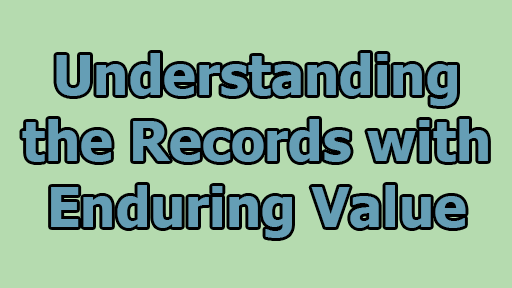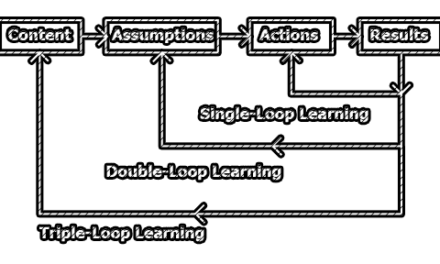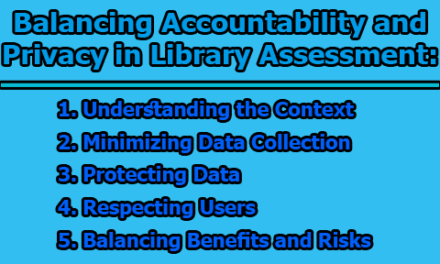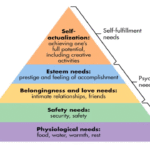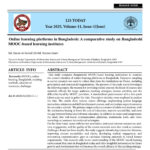Understanding the Records with Enduring Value:
In today’s fast-paced digital world, the concept of preserving records with enduring value has gained significant importance. Records are the cornerstone of history, serving as a bridge between the past, present, and future. However, not all records hold the same significance or longevity. Some records possess enduring value, standing the test of time due to their unique characteristics and importance. In the rest of this article, we will explore understanding the records with enduring value.
Defining Records with Enduring Value:
Records with enduring value refer to documents, artifacts, or information that possess significance and relevance beyond their immediate use. These records have qualities that make them valuable not only in the present but also for future generations, offering insights into historical events, cultural practices, societal norms, or scientific advancements.
Characteristics of Records with Enduring Value:
1. Authenticity and Reliability: Enduring records are authentic and reliable. They are created through credible sources and maintained in a manner that ensures their accuracy and trustworthiness. Authentic records provide a true representation of events or information as they were originally documented.
2. Relevance and Significance: These records hold substantial relevance and significance to various aspects of human life—history, culture, science, or governance. They offer insights into pivotal moments, societal changes, or technological advancements that shaped a particular era.
3. Uniqueness and Rarity: Enduring records are often unique or rare, making them irreplaceable. They might be the sole surviving evidence of a particular event, making them invaluable in understanding historical contexts.
4. Comprehensiveness and Context: These records provide comprehensive information within a broader context. They encompass detailed descriptions, contextual data, or supplementary materials that aid in understanding the significance and implications of the recorded information.
5. Provenance and Documentation of Custody: Maintaining a clear chain of custody and documenting the record’s provenance is crucial. Knowing the origin, creator, and the journey of the record through time enhances its credibility and historical value.
6. Accessibility and Interpretability: While records may endure, their value diminishes if they are not accessible or interpretable. Formats change, languages evolve, and technologies become outdated. Ensuring access and interpretability through proper archiving and preservation techniques is essential.
7. Adaptability and Longevity: Records with enduring value often possess an adaptable nature. They can withstand the test of time, remaining relevant despite changes in technology or societal norms. Formats might evolve, but the essence and importance of the information remain intact.
8. Cultural and Social Representation: Some enduring records serve as representations of cultural or social heritage. They document traditions, beliefs, languages, or practices that define a particular community or society, preserving their identity for future generations.
Examples of Records with Enduring Value:
1. Historical Documents: Original manuscripts, treaties, constitutions, and letters from significant historical figures hold enduring value due to their historical importance and rarity.
2. Architectural Plans and Artifacts: Blueprints, architectural designs, and ancient artifacts provide insights into the evolution of societies, architectural styles, and technological advancements.
3. Scientific Discoveries and Research: Research papers, scientific breakthroughs, and laboratory notebooks document the progress of scientific knowledge, serving as a foundation for future research.
4. Cultural Artifacts: Paintings, sculptures, literature, music, and films represent cultural heritage and artistic achievements that transcend time, offering glimpses into different eras and societies.
5. Photographs and Audiovisual Records: Images and audiovisual recordings capture moments in time, preserving visual evidence and societal norms of the past.
Importance of Preserving Records with Enduring Value:
The preservation of records with enduring value is essential for several reasons:
- Learning from History: These records provide a window into the past, enabling us to learn from historical events, mistakes, and successes, shaping a better future.
- Cultural and Identity Preservation: They safeguard cultural heritage, preserving the identity and traditions of societies, ensuring their legacy survives for generations.
- Legal and Administrative Continuity: Some enduring records have legal significance, ensuring continuity and authenticity in legal matters or administrative procedures.
- Research and Innovation: They serve as primary sources for researchers and innovators, inspiring new ideas and innovations by building upon past knowledge and experiences.
- Collective Memory and Understanding: Records with enduring value contribute to the collective memory of humanity, fostering a better understanding of our roots and how we’ve evolved over time.
Challenges in Preserving Records with Enduring Value:
Despite their significance, preserving records with enduring value poses several challenges:
- Technological Obsolescence: Digital formats become obsolete, risking the loss of data if not regularly migrated to updated formats.
- Resource Constraints: Preservation requires resources—financial, technological, and expertise—which might be limited, especially for less-known or privately held records.
- Natural Disasters and Environmental Risks: Fires, floods, earthquakes, and other disasters pose threats to physical records, necessitating proper disaster recovery plans and storage precautions.
- Ethical and Legal Considerations: Balancing access with privacy concerns or respecting cultural sensitivities requires careful consideration, especially with sensitive historical records.
Strategies for Preserving Records with Enduring Value:
To ensure the longevity of records with enduring value, several preservation strategies can be employed:
- Digital Preservation: Regularly migrating digital formats to prevent technological obsolescence and ensuring metadata preservation for proper identification and retrieval.
- Conservation and Restoration: Employing conservation techniques to protect physical records from environmental degradation and deterioration.
- Archival Standards and Best Practices: Adhering to established archival standards and best practices for cataloging, storage, and access.
- Collaboration and Partnerships: Collaborating with institutions, governments, and private entities to pool resources and expertise for preservation efforts.
- Education and Awareness: Raising awareness about the importance of preserving records with enduring value and educating communities about their roles in safeguarding heritage.
In conclusion, preserving records with enduring value is paramount in ensuring that the narrative of humanity’s past remains intact for future generations. These records encapsulate the essence of our history, culture, scientific achievements, and societal evolution. By recognizing their characteristics, addressing preservation challenges, and employing effective strategies, we can uphold these records as invaluable assets, fostering a deeper understanding of our collective heritage and guiding us toward a more enlightened future.

Assistant Teacher at Zinzira Pir Mohammad Pilot School and College

